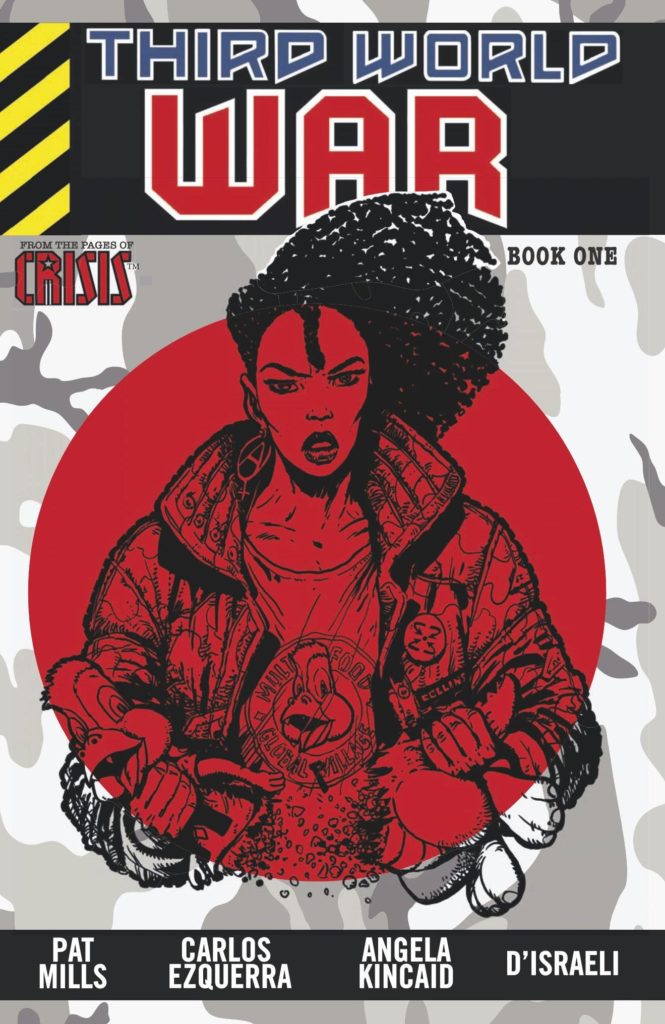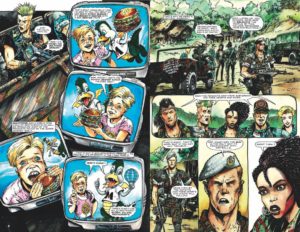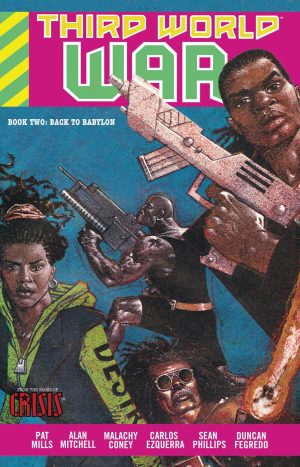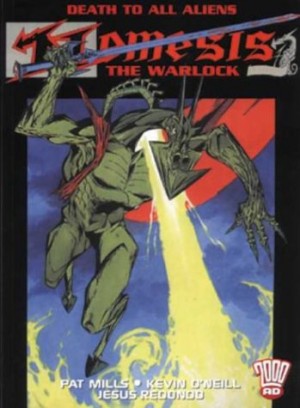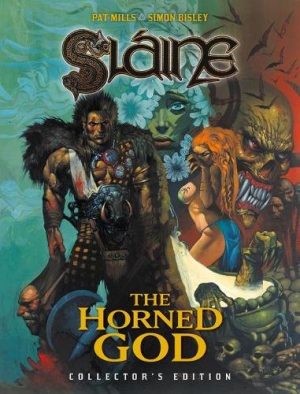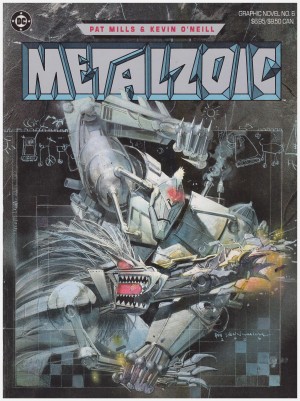Review by Frank Plowright
In 1988 Fleetway promoted Crisis as a substantial leap forward for British comics. Pat Mills certainly thought so, having believed for years the UK could sustain a market for an intelligent adult series along the lines of European publications, and ekeven years after he launched 2000AD the audience who’d grown with it were presented with Mills’ lead strip Third World War. It’s a war strip like no other, supplying military action and thrills, but with the lead characters representing the oppressors.
Mills developed his polemic during what then seemed the most right wing UK Conservative government he’d see during his life, unconcerned with the masses except as consumers, and whose policies widened the gap between rich and poor. From that base Mills extrapolated a Britain with malign corporate influence extending to sponsorship of wars where anyone not considered of great enough value to society is conscripted to fight in them.
Impassioned anger fuels Mills’ plots, and it’s surely a cause of distress rather than satisfaction that some of his exaggerations have come to pass. Our viewpoint is Eve, who attempted suicide before her conscription. Her survival means she’s assigned to a psychological warfare battalion, initially tasked with relocating reluctant Central American villagers to a new “prosperity zone” under the pretext of protecting them from terrorists. This is handled via the barrel of a gun if the villagers aren’t tempted by the sponsor’s goody bag. Mills begins by exploring the political processes of food production, the state protecting corporate interests, but disguised as aid.
Given the politically charged nature, Carlos Ezquerra might not seem the ideal artist, but his contribution is understated and textured, providing the cast with rich personalities and adding a grubbiness to their activities. The credibility he adds is brought home when D’Israeli steps in for a chapter, his pages stiff and two-dimensional. There’s also a posed quality to Angela Kincaid’s characters, but she conveys the personalities far better.
As Third World War continues, the pretence of the future is largely discarded in favour of an alternative version of the then present. Mills references contemporary politics and phenomena such as the South American women staging funereal protests about missing men, life in the British army, and the activities of British military advisors. It coincides with some characters being further developed, woke in today’s terms, while others remain ignorant, in effect blinkered representatives of the general public. Former squaddie Paul provides the explanations, but he’s no hero, Mills showing someone as compromised as the people he’s fighting, and equally contemptuous of human lives.
Groundbreaking and informative in its day, it’s now easy to dismiss Third World War as an echo of the times that produced it, but that’s glib and ignorant as it can still teach a lot. The dirty deeds Mills researched are now easily verified online, and in the years since it’s been business as usual for the people at whom the fingers are pointed. The downside is that when no-one was producing politically charged comics in Britain, Mills needed to be that much more forceful to make his points. It wasn’t subtle at the time, and the hectoring spirit now wears in concentrated doses, at times overtaking the plot. It makes Third World War a conflicted read, one from which much can be learned, but not in a single session. Back to Babylon follows.
